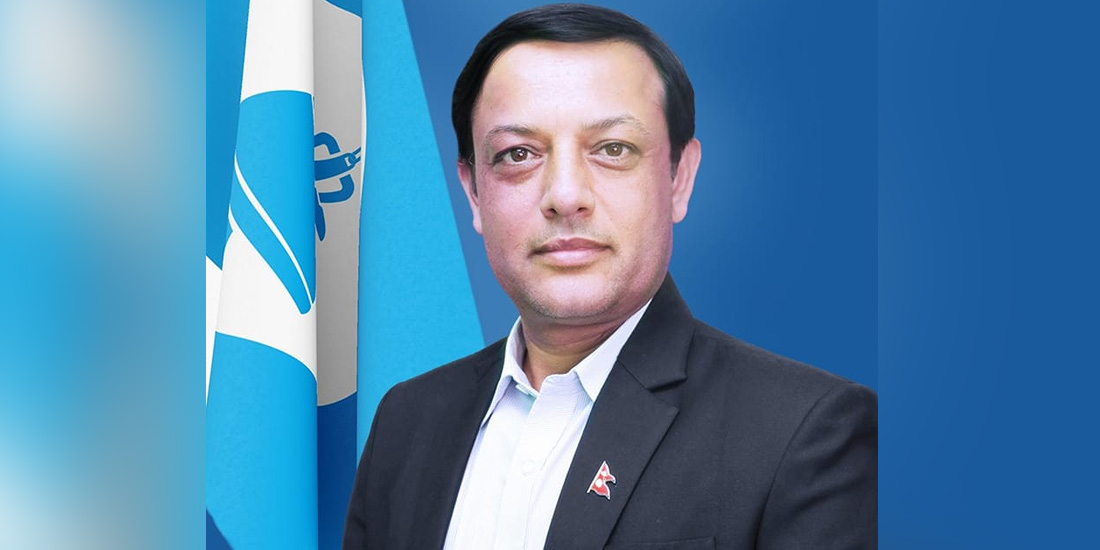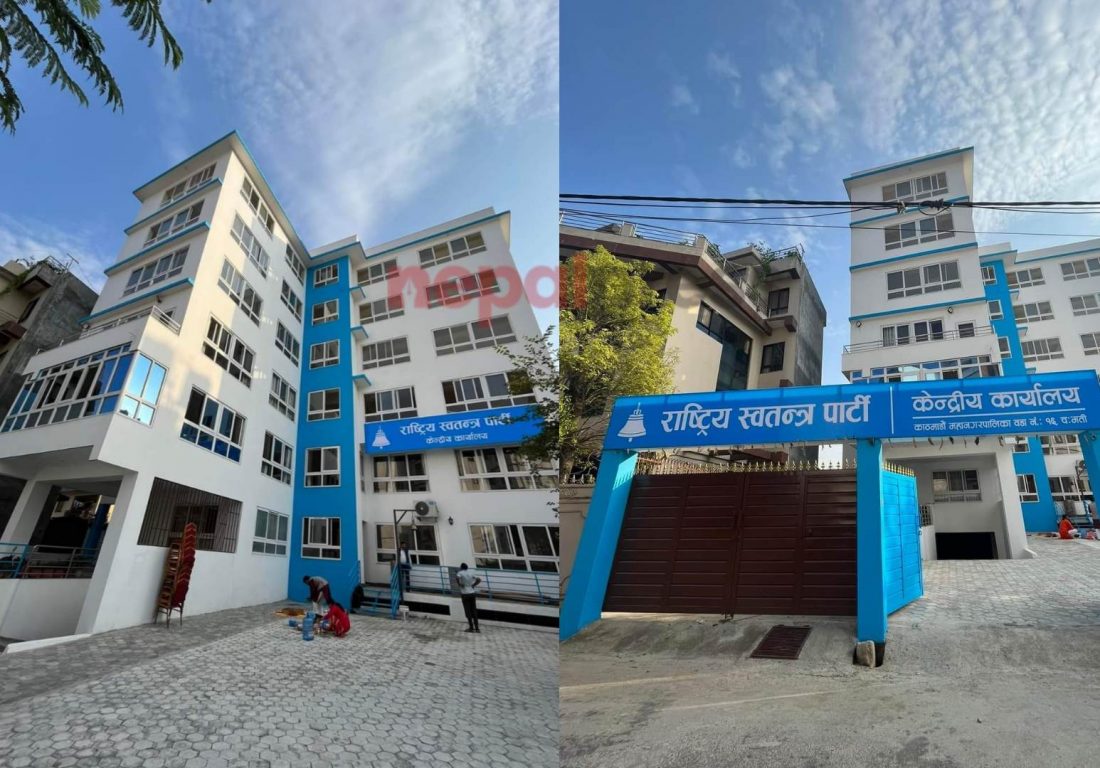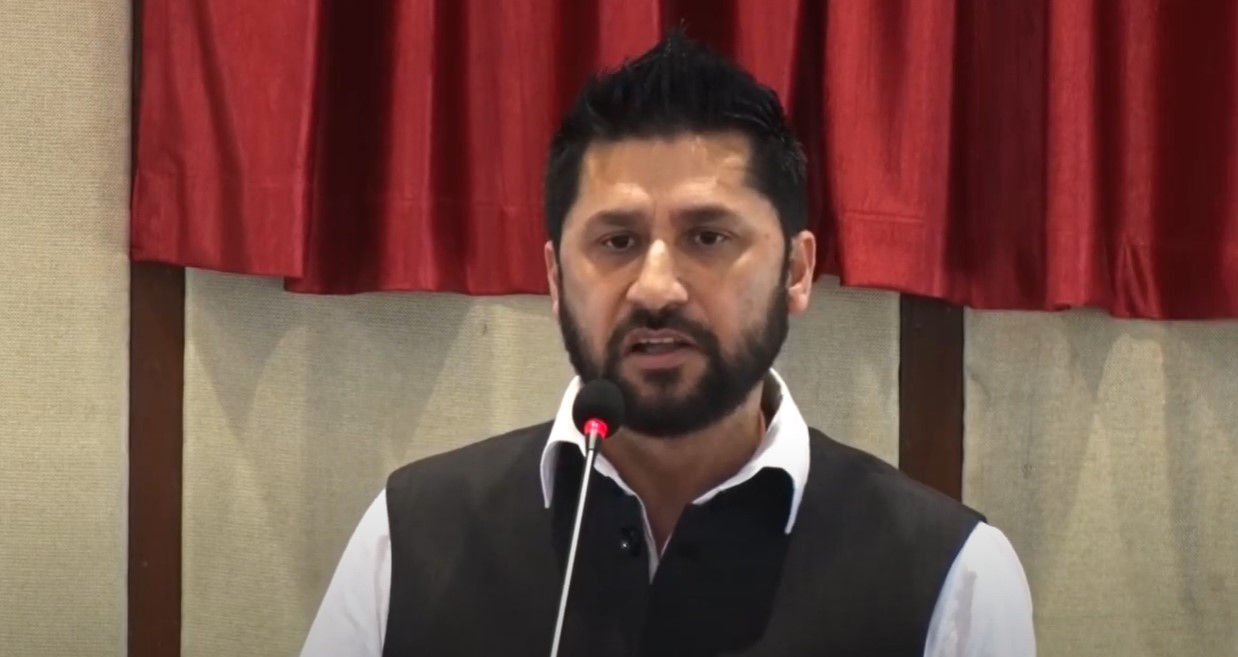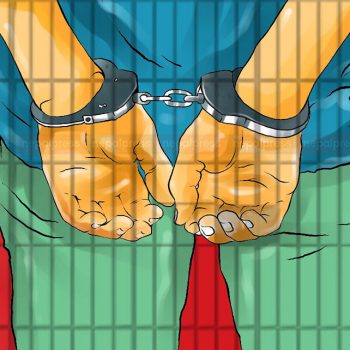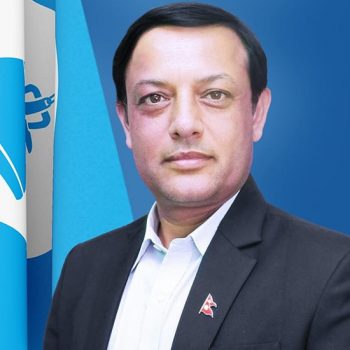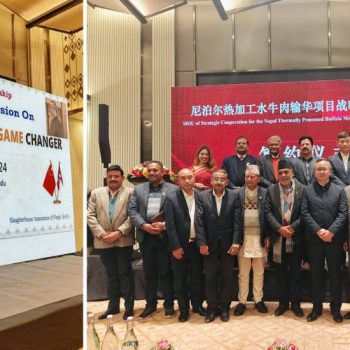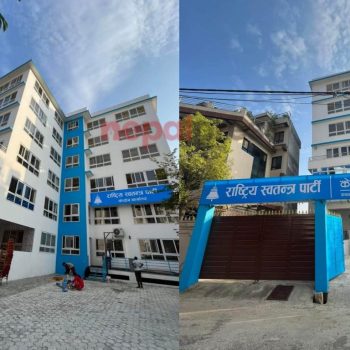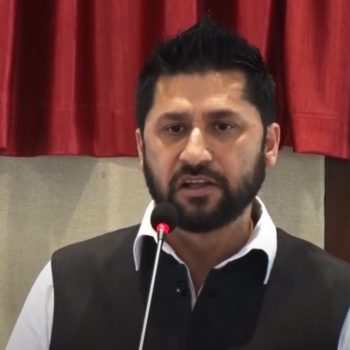Here are five reasons Why Axiata wanted to sell 80 percent of its stake in Ncell

KATHMANDU: Every time when prime ministers of Nepal go on foreign visits, they meet some ‘low and no profile’ entrepreneurs and invite them to invest in Nepal.
Prime Minister Pushpa Kamal Dahal also did the same thing, when he visited Dubai to take part in the United Nations climate conference two weeks ago.
But when he was urging the businesspersons of Dubai to invest in Nepal, Axiata, the Malaysian telecom giant, was preparing to quit the country.
Axiata, which bought the telecommunication service provider Ncell for $1. 365 billion in 2016, sold the company at just $50 million 2023.
Axiata is one of the biggest foreign investors in Nepal so far.
After Prime Minister Dahal returned to Nepal from Dubai, neither he tried to know the reasons behind making the decision to leave the country by calling the officials of the Axiata/Ncell nor he held consultations with the concerned experts or tax administrators.
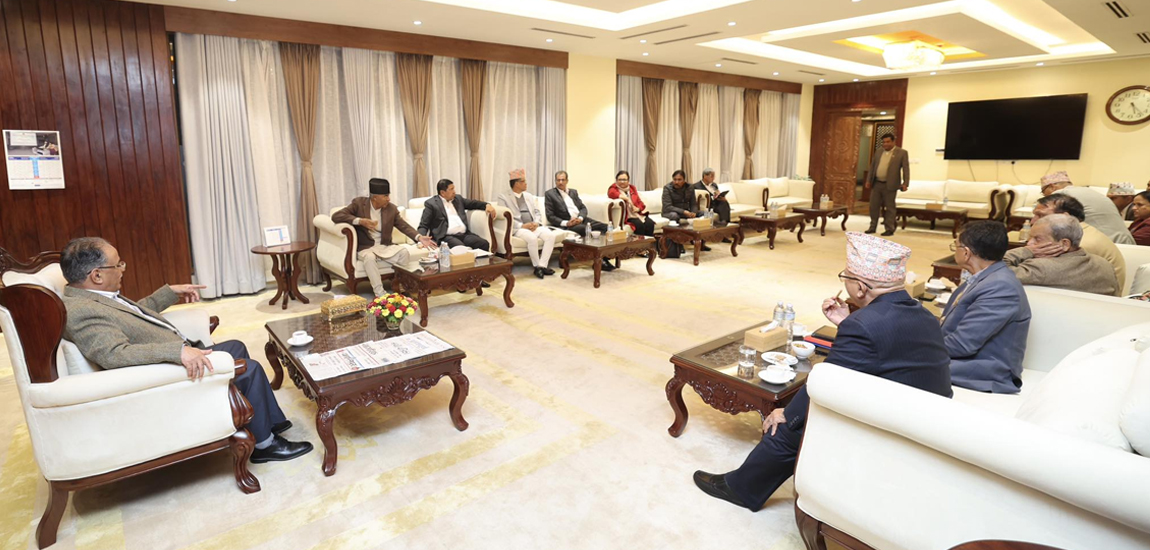
He, however, held meetings with the leaders of political parties.
Politicising the sensitive issues related to the revenue and foreign investment of the government, he summoned a meeting of the senior leaders of the ruling party.
During the meeting, leaders said that the company which evaded the tax should not be spared.
A decision has been made to form a probe committee to take action against Ncell, the private sector telecom giant, and it has been said that the committee has already started its work.
Forming a probe committee, commission and taskforce has become such a cheap practice in Nepal, which has no meaning.
The probe committee formed to investigate the cases from road accidents to corruption takes months to prepare the reports and they later become the showpiece in various ministries.
The probe committee submits the same report which the government wants. Because, there will be the close confidante of the government.
There are government agencies to look into whether the laws of Nepal have been violated or evaded the tax during the Ncell buyout.
Nepal Telecommunications Authority, the telecom regulator, has already written to Ncell. In addition to that, a writ has been filed at the court against the sale of Ncell.
There are two types of judiciary in Nepal. As a formal judiciary, there is a court, where legal practitioners work. Secondly, there are roads and social media networks as unofficial judiciary.
The bench of streets issued the verdict prior to the court. It will have an impact on the judges of the court.
Now, there is a kind of competition in the country to raise voices to condemn Ncell loudly.
Various parties and leaders are trying to fulfill their vested interests in the name of Ncell.
There is a line of professional writ petitioners in Nepal. Whenever a matter comes into dispute, they go to court to file the writ. There will be a competition as to who will register the writ first. Because of which, the issue has become a hot cake in the country.
Please don’t get confused; this article is not written to show sympathy to Ncell.
The concern is about Nepal’s business environment.
What kind of message will it send at the international level when a foreign investor is treated like this? What will be the effect on foreign direct investment (FDI) that can come to Nepal? How will industrialisation of the country be possible if FDI stops? Because of these questions, an effort has been taken to analyze the Ncell scam with ground reality.
Did Axiata quit the country coughing up billions of rupees by hoodwinking the state mechanism or decided to exit the country because of the increasing challenges in the operating environment? Let’s try to find the answer.
Questions and doubts raised in Ncell share buyout
Basically, there are two accusations pertaining to Ncell share sell. First-Nepal’s legal provisions were violated and second-tax evasion.
With the news of Ncell sale and purchase agreement came into light, everyone’s first comment was Axiata sold Ncell at a low transaction value.
It would have seemed unnatural for such a large, profitable company to be sold at 94 percent below its purchase price.
But, in reality, it was not like the news that came out.
Axiata, on its part, appears to have landed safely.
First of all, everyone needs to understand why Axiata wanted to sell 80 percent of its stake in Ncell.
Basically, it has five reasons.
- A legal obligation to handover the key to the government by 2029
- An additional Rs 20 billion to be paid to the government between 2024-2029 to renew the license
- A case of Rs 57 billion capital tax pending in court
- Nepal’s unfavorable business environment
- Declining business and profits
Legally, the life of the license granted for telecommunication services is 25 years.
As per Section 33 of the Telecommunications Act 1997, a telecom company with over 50 percent investment of foreign person or organised institution needs to hand over all the assets to the government upon the expiry of the license period.
It means that the government will nationalize such companies.
But, the law itself is not strong as the company can leave the county by selling all its stake before the completion of 25 years.
Axiata has taken advantage of the same ‘loophole’.
It is foolish to say that Axiata sold 80 percent of its share at the loss of Rs 36 billion. Because there are many other economic benefits that Axiata will get from Ncell share buyout which will bring the sale and purchase in balance.
According to the agreement, Axiata has shifted the major financial liability to the buyer and has ensured that the benefit will continue to be received at a fixed ratio until the year 2029.
While expanding the infrastructure, the loan of Rs 42. 3 billion taken by Axiata has been transferred to Spectrlite UK Limited.
On top of that, Satish Lal Acharya, owner of Spectrlite UK, is ready to take all the risks of the case that is sub-judice in the Supreme Court.
It means that if the Ncell loses the case, the Spectrlite has to pay additional Rs 57 billion in tax set by the court.
Accused of violating law
To some extent, Ncell’s sale and purchase agreement was made in an opaque manner. Like in 2016, the agreement was made outside the country by bypassing the government agencies of Nepal.
The decision of the Axiata to exit from Ncell made on September 29 was made public only after two months.
Soon after, Spectralite was said to have bought Ncell through competitive means.
But this all seems to have been premeditated.
Spectralite was registered in the United Kingdom only months before Axiata put Ncell on sale.
This means, Satish Lal Acharya has established the company just to purchase Ncell.
Acharya claimed that his company was selected from many companies who took part in the tender process.
Axiata, however, has not disclosed the details of the companies that took part in the tender process.
Another question is the distribution of dividends.
It has been agreed that Axiata will continue to take dividends for six years even after the sale.
The government officials have said that the Ncell share buyout has not abided by the rules of Nepal government.
It has been mentioned in the Section 15 (1) of the Telecommunication Act 2054 that the company should take approval from the telecommunication authority before buying or selling the shares exceeding five percent of the paid-up capital.
The Act related to foreign investment, however, states that prior approval is not necessary while purchasing or selling the company.
It would be ok to give a notice of purchase and sale within one month.
In this case, Ncell has not breached the Act. Based on this Act, Ncell has prepared to give notice within 30 days. Because of the two contradictory Acts, Ncell seems to have got a chance to play with the government.
Moreover, Ncell has said that the sale and purchase of its shares have taken place even though the agreement has been made.
In a legal way, the ownership should be transferred to complete the selling and purchasing process.
If the government does not give legitimacy to Ncell share buyout, Axiata can say that it had reached an unconditional sale and purchase agreement with Spectrlite for the sale of Reynolds Holding Limited not Ncell.
Capital gain tax dispute, trying to raise double tax
Ncell’s capital gains tax dispute has been raging for a long time. The dispute that started after Axiata purchased Ncell from Teliasonera has not been resolved yet.
There was an attempt to evade capital gains tax when Ncell was bought and sold on April 12, 2016. However, this raises the question of whether the culprit is Teliasonera or Axiata or both.
There is a provision that the tax should be paid to the government from the profit while selling the shares of the company. Two provisions of the Income Tax Act can be attracted to this, which will create the situation of double tax.
Capital gains tax is levied on the amount of profit made by an individual or a company while selling the shares. This means that the seller of shares has to pay the tax, not the buyer. The government should have collected the tax from Teliasonera not Axiata while buying and selling Ncell in 2016.
But the government did not know that the company was being bought and sold abroad.
The concerned authority knew that the tax was evaded while buying and selling Ncell when the news started hogging the headlines. However, by that time, Teliasonera had already left the country.
The government, which was criticised from all sides, finally apprehended the buyer.
The Large Taxpayer Office (LTO) determined a capital gains tax with a huge penalty and interest in April 2016.
Ncell moved the Supreme Court against the tax determined by the office. But the apex court also issued the verdict in favour of the government saying that the company should pay the capital gains tax. Later, Ncell was compelled to pay all the tax determined by the government.
Ncell has so far paid Rs 47. 39 billion to the government as capital gains tax.
The company also took a tax payment certificate from the Large Taxpayer Office in March 2020. The issue should have been resolved here. But it did not.
Ncell moved the international court saying that the government collected tax from it illegally.
The verdict of the case filed by Ncell at the International Centre for Settlement of Investment Dispute came in May this year. But the verdict did not give relief to Ncell. The ICSID upheld the decision of the government to levy tax on Ncell.
Meanwhile, the Large Taxpayer Office issued another bill of Rs 57 billion on Ncell.
The case filed by Ncell against this decision is sub-judice in the court.
In fact, the government is trying to levy a double tax on Ncell. Ncell has already paid Rs 48 billion as capital gains tax to the government.
Exit of Teliasonera
The Swedish company Teliasonera came as the first foreign investor in the telecommunication sector of Nepal. Telia, which purchased Ncell (then Spice Nepal) in 2004, did business in Nepal for 11 years. It made handsome profits. But the company’s experience in Nepal was not pleasant either.
Telia had to face many hurdles to take the money it earned in Nepal back to Sweden.
When Telia for the first time sought permission from the Nepal Rastra Bank to take dividends to Sweden, the central bank told the company to bring the recommendation of the telecommunication authority. When the company reached the authority to take the recommendation, the officials at the authority asked for some money. But the Telia was not ready to bribe the officials. Later, the authority expressed its reluctance to give the recommendation. Finally, Telia moved the court. The deck to repatriate the dividends was cleared after the court issued an order in favour of the company. But Telia was not able to take all the dividends. Around Rs 78 billion was in the reserved fund. Telia sold Ncell to Axiata by evaluating the accumulated funds. The CEO of the company had complained a lot about the business environment in Nepal. He could not even return home directly from the flight.
Fearing that he might be arrested at the airport, he first went to Delhi via road and took a plane from there.
Telia breathed a sigh of relief after it became able to sell Ncell to Axiata at a high price.
What will happen now?
Questions about the company’s future have started to arise after Spectrlite UK Limited bought 80 percent shares of Ncell from Axiata. The remaining 20 percent is also with the Sunivera Capital Ventures of Bhawana Shrestha, wife of Satis Lal. Now, the Ncell is fully owned by one family.
Spectrlite was registered in the UK just to purchase Ncell. It does not have a huge capital. As Sunivera has been taking 20 percent dividends of Ncell for seven years, its account could be strong.
Needless to say, it is a big gamble for Satish Lal. He could make hefty profits or come to the roads. Because, the state mechanism of Nepal is not trustworthy.
Nevertheless, many things depend on the verdicts of the court. The high court has issued an interim order stating that the sale and purchase of Ncell will not be recognised immediately. Now, it cannot be predicted what will happen in the final verdict.
Satish Lal’s problem will not be resolved just by bringing Reynolds Holding Limited, the parent company of Ncell, into his ownership. The ownership should also be transferred in the Company Register Office of Nepal. Otherwise, the problem could arise in operating the company and taking the dividends abroad. Besides that, Rs 42 billion loan from banks and the case of Rs 57 billion of the court are also on his head.
Another question surfacing about the future of Ncell is what will happen after 2029. Satish Lal is a Singaporean national of Nepali origin that means he is an NRN. It is not clear whether Spectrlite can continue it or not after the expiration of the 25 years term of Ncell. This confusion has arisen due to the legal provision that it should be transferred to the government after 25 years in the case of foreign investor. The Parliament has recently endorsed an ordinance to provide citizenship to NRNs, under which they have got other rights apart from doing politics. A section of people said that Satish Lal can operate the company as a Nepali citizen on the basis of the same in one hand. On the other hand, another group of people have said that the company should be nationalised after 2029 as it has been registered abroad.
The question arises as to why Satish Lal took such a risk after understanding the legal system of Nepal. It could be a strategy of Satislal to avoid nationalisaion where Sunivera will buy all the shares of Spectrlite in the near future. Sunivera’s owner is his wife and she is a Nepali citizen.
Some have also raised the question as to what is Satish Lal’s financial source for purchasing such a large company.
He had left the country during the Maoist insurgency. Satislal, who has been doing business in Singapore, is said to have a close relation with high-ranking political leaders of Nepal.
Protection of foreign investment and business environment
The fact which is accepted by all is that Foreign Direct Investment (FDI) is essential in Nepal. Industries and factories have to be opened to lead the country towards economic prosperity. The production should be increased. Enough job opportunities should be created. Trade deficit should be balanced.
But the industries and factories, which have been helping to uplift the economy of the country, have also been shut. Neither the government has willingness to open new industries nor has money. As there is no source to build capital within the country, there is no alternative for the government to call for investment. The government is also preparing to hold the Investment Summit to attract the foreign investment. The Ncell case has exposed the kind of environment that we are providing to foreign investors. It should be noted that the foreign investors tried to evade taxes due to lack of strong laws.




